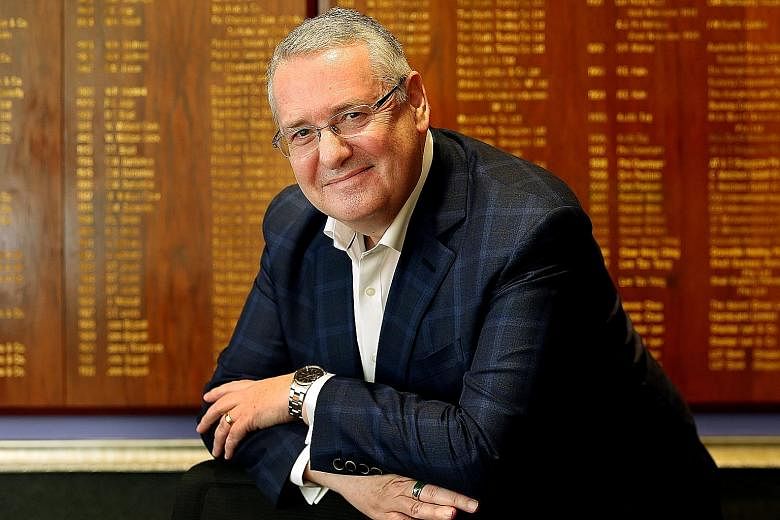Stay adaptable and be open to change. That is what Singapore companies should do to survive amid heightened global uncertainty, said Singapore International Chamber of Commerce (SICC) chief executive Victor Mills.
"There's always been uncertainty, although what we're faced with now is a higher degree of uncertainty - and it's not just geopolitical or economic, it's the whole impact of digitalisation on jobs," he told The Straits Times yesterday.
"But if you look back to the first industrial revolution, similar things happened. There was tremendous uncertainty... People did lose jobs, but in the long term, that revolution provided more. And I'm very confident that what people are referring to as Industry 4.0 - the move towards digitalisation, automation, artificial intelligence - will do exactly the same."
The key here, for businesses, is to stay adaptable, keep learning and embrace change, he added.
Mr Mills acknowledged that companies continue to grapple with challenges in areas such as costs, recruitment and overseas expansion, which become more pronounced amid the tepid global economy.
To give companies a leg up, the SICC, which turned 180 years old yesterday with some 700 members, has been ramping up its efforts to drive innovation collaboration among companies.
It launched its annual SICC Awards in 2015, aimed at recognising and encouraging collaboration between large organisations and local small- and medium-sized enterprises. This year's awards will be held on March 24, in conjunction with the SICC's 180th anniversary celebrations.
"The fastest way any company can innovate is to collaborate," Mr Mills noted. "If you're very big, often the internal bureaucracy is so complex that it takes months for decisions to be made, and that can result in paralysis and missing an opportunity. That's where a smaller, nimbler SME can help."
He cited the winners of last year's Most Transformational Collaboration award - HP Inc, Mega Plus Technology and Super Pak Manufacturing - which worked together to come up with an automated packaging process for HP's ink products at a lower cost.
"It is precisely that kind of collaborative innovation that allows you to adapt more quickly to changing economic times," he said.
The same collaborative spirit, he added, should apply when companies are looking to expand abroad.
"It is often said that when Singapore companies go out into the region, they hunt individually. The South Koreans, Japanese, Taiwanese, Hong Kongers - they hunt in packs," he said.
"Often, in this country, we're too kiasu, too afraid of telling somebody something because we think about what we are going to lose, instead of thinking about what we can gain if we work together.
"This is something that is even more important today - companies cannot be closed, we have to be open. It's part of managing risks in order to exploit opportunities," he added.
Besides encouraging mutual collaboration between companies, the SICC has also been advocating skills-based recruitment and inclusivity in the workplace, which will help better attract and retain talent in a tight labour market.
"It's a big mindset change for us... but sitting still is not an option because the world is rapidly changing," he said. "There's always a risk to manage; there's always something to keep you on your toes. "


